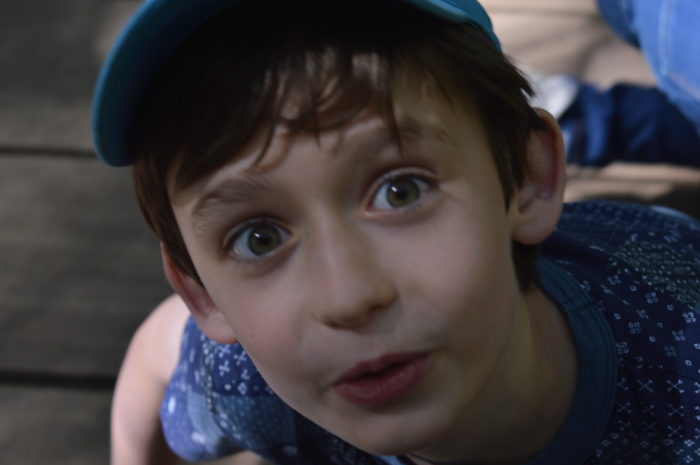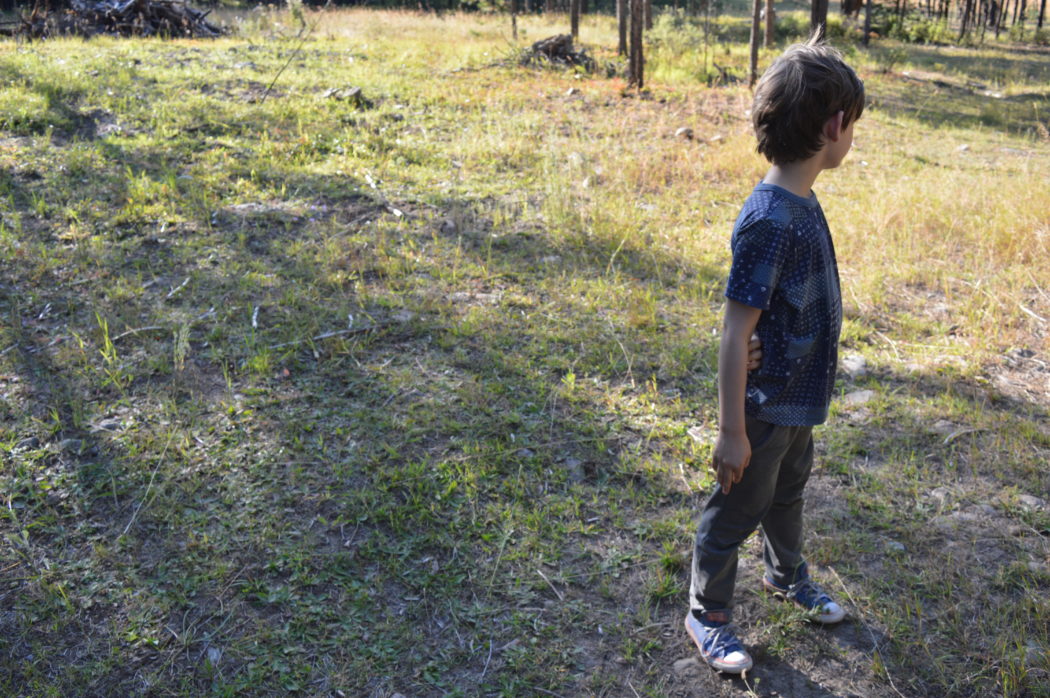When you picture meltdowns, what do you see? My guess is that you see the biggest tantrum: yelling, throwing things, throwing their body around, screaming, thrashing…destruction and noise. And, yes, those types of meltdowns do exist, and they do happen. My son’s meltdowns are often different.

Our son is the sweetest, highest functioning autistic boy you will ever meet. But, even he struggles with emotions and meltdowns do happen. I’m happy to report that they’re becoming fewer and fewer.
Part of that is because I see the signs before they start and I’m able to defuse the situation. A lot of it is because he’s getting older and incredibly smart- he observes human behaviour and knows what is acceptable in certain situations and mimics it until he can be alone. (He’s always been good at mimicking acceptable behaviour and I think he often uses Isabella’s actions as a go-to: which is why strangers, family and teachers don’t often notice when he’s just coping and not thriving. Meltdowns often happen at home).
Sometimes, Hunter can express that he’s overwhelmed (through words or stimming actions), so that I can get him out of the situation before he is overloaded and a meltdown starts. We’re working on coping mechanisms he can use himself, when he recognizes he’s feeling over-loaded- and I’m learning what works and doesn’t work when I’m there to help.
So what do his meltdowns look like?
Hunter can’t express his emotions and has trouble telling me what’s wrong. Meltdowns don’t mean he’s upset about anything, but temporarily overwhelmed with sensory overload. A sudden change in routine or too much to think about or handle can also cause a meltdown.
This time, I didn’t see it coming. He opened up his mouth to talk and then all that came out was a whine. A high-pitched one note whine. Oh-oh, I thought. Before I knew it, Hunter was laying face down on the hard kitchen floor, the whine barely audible.
And this is what he does. He doesn’t always make the noise. The unresponsiveness is a constant, though.
Hunter will get really quiet and stop responding. He lays face down on a chair, bench, or floor and won’t move or respond to requests, threats or bribes. What he’s doing is trying to shut out the world for awhile.
Side note: (A meltdown is different from a tantrum because when a kid is having a tantrum they want something- their parent to stop yelling, the candy they asked for, to get out of eating their veggies, etc.. I love THIS ARTICLE that explains it better than I can.)
It used to take him forever to “recalibrate” (my word for it) and “come back” to me. He’s done it in restaurants, grocery store aisles, in the middle of the kitchen, in the street, at the bottom of the slide in playgrounds…When a meltdown starts, Hunter is no longer concerned about his safety or others.
When he was younger, I didn’t realize it wasn’t “just a toddler thing”. Yes, of course I thought it was odd, but I just thought, “all toddlers are different and this is his way”. Now that we have the autism diagnosis, I look back and his behaviour makes sense. I can’t turn back time- but, if I’d known earlier, I could have handled it differently and wouldn’t have felt so helpless when Hunter would suddenly lay face down in the middle of grocery aisles, forcing me to abandon groceries and carry his limp body to the car, for example.
I remember one incident where Hunter was freshly potty-trained (I want to say 3 years old, maybe 3 1/2) and he had an accident- which actually wasn’t an accident at all, but a very quiet meltdown. He covered his ears while I was making dinner in the kitchen and Isabella was drumming on pots. Without a sound, he lay down on the floor, ears covered with his hands and lay there for a long time. I thought he was tired. Isabella and I let him be, walking around him to get to things. I would lean down to check on him but let him stay, waiting for him to snap out of it. When he didn’t even move to go to the bathroom and peed on the floor, I was annoyed and actually remember thinking “What a tiny asshole!” I sighed inwardly, and asked him kindly if he needed some help, with no response from him. I changed him and put him down for a nap. Hunter was still in his meltdown.
Nowadays, I would know he was unable to move, that he wasn’t “recalibrated” yet and was just overwhelmed. Often his meltdowns are preceded by some form of stimming. When Hunter was younger, I wasn’t always able to see the signs before a meltdown. Now, I often noticed the stimming before others do or before Hunter knows he’s doing it and I’m able to get him to a quieter, calm place.
To get him out of the other day’s meltdown, I acted like a human weighted blanket, placing pressure on him gently but firmly, in the way he likes. When he was a bit calmer, he allowed me to firmly rub his back and when he was even calmer, I was able to get him to push against me to have him feeling more in control. Still not talking, Hunter was responding to my requests and I got him to give me a thumbs up if he could hear me. Then, it was time to cuddle. I gathered him on my lap and with a firm hug, rocked him slowly back and forth until he was talking again. It took about 40 mins, which was quick for Hunter. I’m just glad I can often pull him out of it, with a repetitive pattern of help and pure instinct.
Are you a parent with an autistic kid?
What do your child’s meltdowns look like?
What coping mechanisms help?
.
.
.
READ NEXT:

[…] What My Autistic Son’s Meltdowns Look Like […]